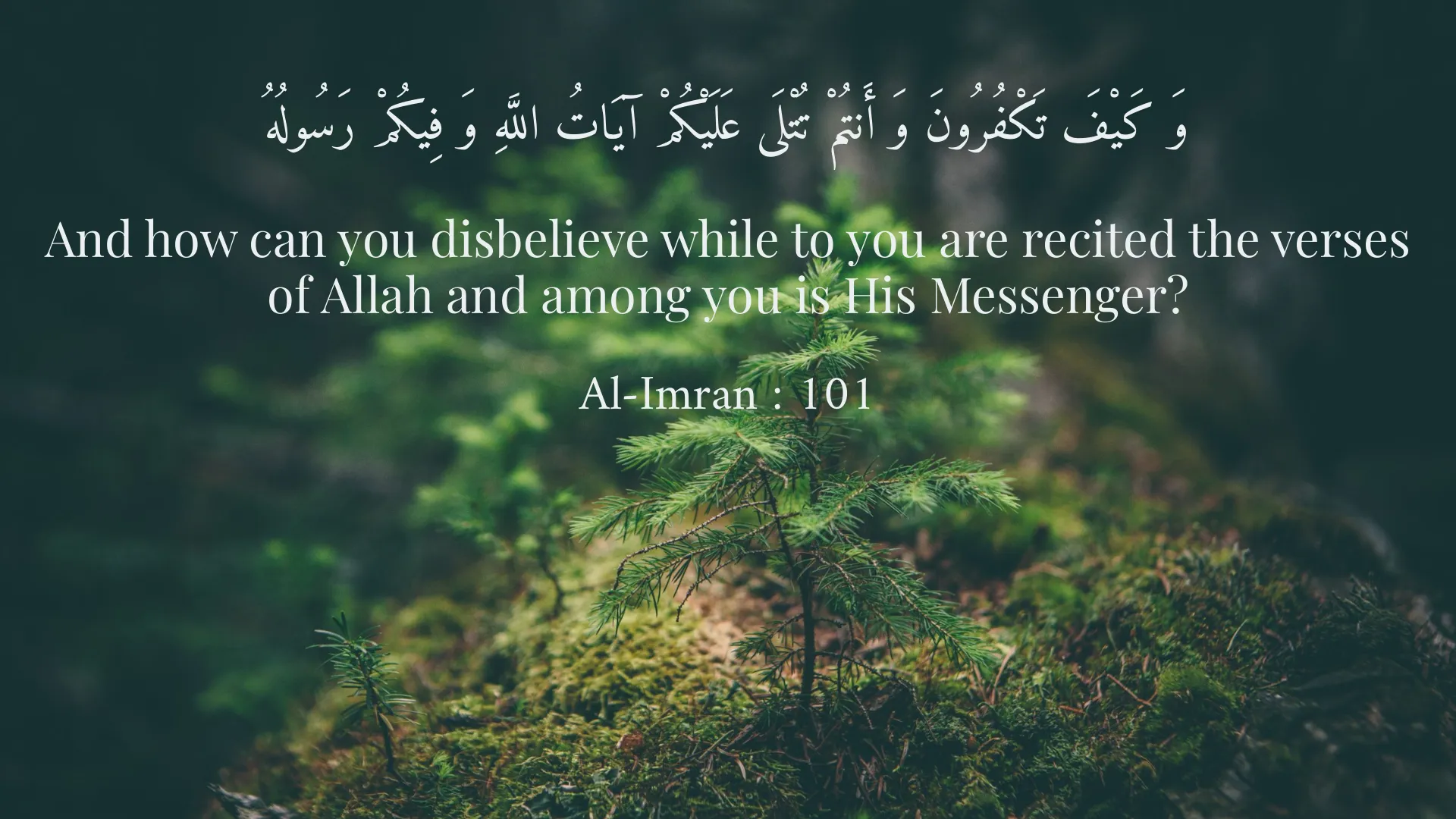Quranic Answer

In today's rapidly shifting socio-political landscape, the need for voices to rise against injustice and oppression has become increasingly crucial. The Holy Quran addresses these themes decisively, reminding believers of their roles in advocating for justice and righteousness. One of the profound discussions surrounding these themes can be found in the verses of Surah Al-Imran and Surah An-Nisa. In Surah Al-Imran, Allah asks a rhetorical question that resonates with both gravity and urgency: 'And how can you disbelieve while to you are recited the verses of Allah and among you is His Messenger?' (Al-Imran, 101). This inquiry serves as a powerful wake-up call, challenging individuals to reflect on their responsibility when confronted with Divine truths and prophetic guidance. It begs the question: how can one remain silent in the face of undeniable truth? How can believers ignore their obligations to act when the repercussions of inaction can lead to societal decay? The invocation of the Prophet in this verse underlines the significance of possessing a moral compass rooted in divinity. The presence of the Messenger among the believers illustrates the divine proximity and the continuous call to uphold justice. If the messages imparted through scripture and the example of the Prophet are to inform one's conscience, remaining passive or silent becomes synonymous with disservice—not only to oneself but to the entire community. This theme is echoed in Surah An-Nisa, where Allah commands, 'O you who have believed, be persistently standing firm in justice, witnesses in the name of Allah' (An-Nisa, 135). This verse not only emphasizes the importance of standing firm in justice but also instills a sense of accountability towards bearing witness against oppression. It delineates a clear moral stance that believers are called upon to adopt; that is, to embody justice and advocate for it relentlessly. The term 'witnesses' suggests an active participation in social justice, one where believers must not only acknowledge wrongdoing but also address it vocally and, when necessary, through protest. Fundamentally, these two verses establish a framework for understanding the ethical obligation to act against injustice. Silence, as the Quran indicates, is not a virtue in circumstances where truth is being compromised and oppression is taking root. Throughout Islamic history, we see exemplified instances where individuals and communities have risen against tyranny, using their voices to demand justice inspired by these very teachings. The prophets themselves serve as archetypes of protestors against societal injustices. They embodied the courage to speak truth to power, even in the face of personal risk. Now, translating these teachings into modern practice poses challenges. The contemporary world, while vastly different in many aspects from the time of the Quran's revelation, still faces numerous injustices that require a collective stand. Access to platforms for free expression, social media activism, and grassroots movements have become the modern tools in the quest for justice. Such platforms allow individuals to share their experiences, support one another, and unify their voice against oppression. In many cases, healthy protests have led to significant social reforms, changing laws, and improving lives. However, for this expression to be truly impactful, it must be rooted in respect and appropriateness; protests should not descend into chaos or violence. The teachings of the Quran instruct that standing against injustice should cultivate understanding, dialogue, and ultimately, solutions. Engaging respectfully fosters a communal environment where voices can be heard without antagonism, allowing for meaningful discussions that can lead toward reconciliation and reform. It is crucial to recognize that protesting is not just a collective undertaking; it is also an individual right. Each individual carries the responsibility to advocate for themselves as well as for the vulnerable and marginalized within their communities. Thus, when one notices an injustice, the obligation to respond can be seen as both a personal and social duty. In critical contexts where rights or justice come under threat, remaining silent can be perceived as an acceptance of the status quo. In situations where the marginalized lack representation, when minorities suffer discrimination, or when laws are unjustly enforced, silence becomes complicity. The Quran implores its followers to stand firm: both physically and morally. It is essential to remember that throughout history, social change has often been sparked by those who refuse to accept oppression and who bravely stand up to speak the truth. In conclusion, the call to advocate for justice and righteousness laid out in the Holy Quran is timeless and remains profoundly relevant in today's world. The teachings underscore that believers are not called to be mere observers in the face of injustice but rather active participants in the quest for social justice. As the verses illustrate, to remain silent is to allow oppression to thrive, while to protest and voice one's thoughts can lead to transformative changes in society. The integration of faith, action, and justice is essential; as each of us embraces this responsibility, we foster a more just, compassionate, and equitable society for all.
Related Verses
وَ كَيْفَ تَكْفُرُونَ وَ أَنتُمْ تُتْلَى عَلَيْكُمْ آيَاتُ اللَّهِ وَ فِيكُمْ رَسُولُهُ
And how can you disbelieve while to you are recited the verses of Allah and among you is His Messenger?
Al-Imran : 101
يَاأَيُّهَا الَّذِينَ آمَنُوا كُونُوا قَوَّامِينَ لِلَّهِ شُهَدَاءَ بِالْقِسْطِ
O you who have believed, be persistently standing firm in justice, witnesses in the name of Allah.
An-Nisa : 135
Short Story
One day, a man named Ahmad lived in a small village. He felt sad when he saw others remaining silent in the face of the oppression faced by their neighbors. He decided that instead of remaining silent, he would raise his voice. With a heart full of faith and love, Ahmad began to speak to others, reminding them that injustice should never be accepted. Over time, others joined him, and together they were able to tackle the issues they faced. This experience taught Ahmad that silence could worsen situations, but the voice of truth could always bring about victory.